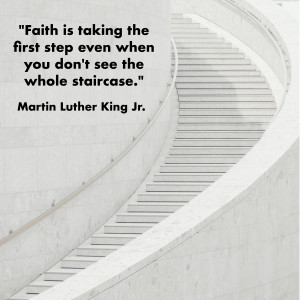When I was younger, I used to believe that I didn’t get angry. Nonsense! While I may not have had much aggression or hostility, the actual meaning of anger is much broader—it’s more or less synonymous with aversion, with the sense of disliking or resisting something.
It’s helpful to think of anger on a spectrum. On one end, there is minor frustration and irritation. On the other end, there is major aggression and hatred.
The basis for approaching anger this way–as synonomous with aversion, as existing on a spectrum–is a close observation of how we actually experience these inner events. Everything on that spectrum has an identical mental root and an identical feel (it only varies by degree).
You don’t need to try too hard to observe this. Most people experience anger hourly, if not minutely. We are a tremendously aversive species. However, forget the value statements on whether anger is bad/wrong or, inversely, even evolutionarily helpful.
Instead, firstly just realize it’s a normal human experience and that it’s often happening inside you. That by itself is a rather revolutionary practice. Once you recognize that it’s happening, even more important is recognizing how you handle it.
There’s five basic ways. We will explore them in the context of this scenario:
It’s your mother’s birthday next weekend. You go out to lunch with your sister and mother. At some point, your sister, knowing the gift you have already bought for your mother, unintentionally but mindlessly mentions what you have bought for her. The surprise is ruined! A wave of anger/aversion sweeps through you. Here’s how you could handle that:
1. Aggressive.
Just letting it out. No holds barred. Maybe you yell at her, hit her, make a nasty comment. Obvious enough.
2. Passive.
Bottling it up. You don’t say or do anything, pretending like it never happened, even though inside you’re actually angry. At some point, perhaps tomorrow or a decade from now, the bottle may very well burst.
3. Passive-aggressive.
Revenge. Maybe conscious. Maybe subconscious. It begins with the passive strategy, but the anger slips out in other ways. Maybe 10 minutes later, you make irritable remarks to your sister. Maybe three days later, you ignore her phone calls, or answer and act withdrawn. Whatever you do, you pretend that you never actually got angry—but the facts don’t lie—your anger is covertly bubbling out.
…….
Obviously, none of those three ways is very skillful. Thankfully, there exists some more skillful options.
…….
4. Mindfully-held.
You acknowledge your anger, feel it reverberating through you, understanding it to be just an emotion, just an object of awareness. You make a decision to let it pass.
There’s a subtle distinction between this and the passive strategy—in mindfully-held anger we let it go, but only if we’ve genuinely come to terms with it. So, if you’ve truly done that, then for the duration of the lunch and in the days and weeks to follow, you engage with your sister just the same as before, genuinely at peace with her mental slip.
…….
A challenge people often have with “self-development” practices is falsely believing that a “highly developed” person just accept everything that happens, essentially becoming doormats for everything from our loved ones’ destructive habits to wide-scale social injustice. Nonsense! Instead, the more you become skillful with your anger, the more you see that, yes, sometimes there is nothing to be gained by expressing your anger, sometimes it will just create more problems, so it’s most appropriate to just mindfully accept what happens and move on. However, other times, the best response is to constructively channel that anger into some form of action or expression.
In other words, the more skillful we become, the more we learn to pick our battles. When we choose to engage with it, we come to the fifth possibility:
5. Compassionate Expression.
Acknowledging your anger, mindfully observing and feeling it; and, after making sure that the heat of the emotion has cooled, you still feel like it’s something that needs to be expressed.
Perhaps after the meal, alone with your sister in a safe space, you mention that when she revealed your gift, you felt hurt and frustrated. Perhaps you add that she did a similar thing a month ago. Doing your best to abstain from accusations and criticisms (that won’t lead anywhere skillful), you simply express your inner reality, that it’s important for you to able to trust her, and maybe request that she be more careful in the future.
If it’s social injustice your pissed off about and you choose ‘compassionate expression, you’re still best channeling that somewhere specific. This might not even involve words, but simply showing up for rallies, making donations or giving marginalized people our eye contact and respect.
If you’re angry at yourself, carrying around a sense of “not being good enough” as a person, a friend, a lover, a worker, an artist or whatever else; then, after you’ve mindfully made peace with yourself, perhaps you could compassionately transmute that anger into some form of inspired action.
……
In summary, anger is not the demon it’s often made out to be. It’s a natural human experience. It happens for everybody. However, there’s a big difference between someone who lets their anger take control over them, and someone who takes control over their anger.
To be in the latter category, to come into more skillful ways of handling your anger, there’s two basic steps:
1) Be aware of when you are angry and when you are not angry. Simple but extremely powerful.
2) Having done #1, carefully observe how you handle your anger. Which of the five types have you favored historically? In each and every instance of anger, which one are you choosing (or not choosing) to enact?
And, importantly, don’t forget to be kind to yourself!




